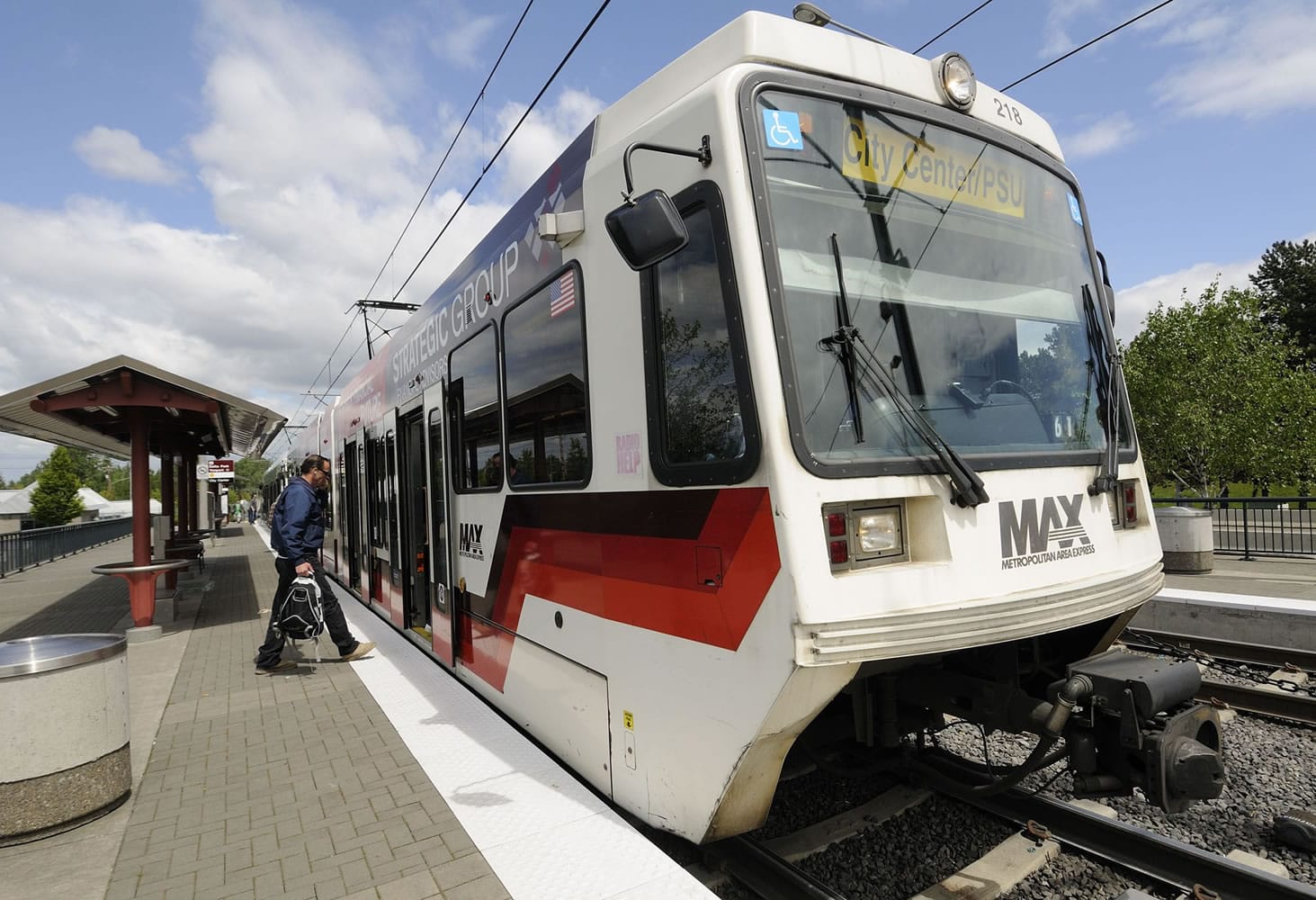As C-Tran looks for ways to pay for operating light rail in Vancouver, an early analysis shows most of the recently explored options wouldn’t foot the bill by themselves.
If they don’t pencil out, that would leave the agency right back where it started: pursuing a sales tax increase — and a November ballot measure — to pay for light rail.
That’s the path C-Tran had long assumed until earlier this year, when Vancouver Mayor Tim Leavitt and others pushed for more study of funding sources that wouldn’t require a sales tax hike. Last month, the full C-Tran Board of Directors told agency staff to explore possible alternatives, while keeping an emphasis on a November ballot measure this year.
C-Tran and the city of Vancouver have since looked at several possible options: an employer tax, a car rental sales and use tax, and a vehicle license fee among them. The agencies also evaluated using money from their respective general funds. In C-Tran’s case, that would require a change in board policy. Officials even included a “sales tax windfall” from the Columbia River Crossing — that is, using the extra tax revenue generated during construction of the $3.5 billion megaproject.
By themselves, most of those examples appear to fall well short of covering the estimated $2.57 million annual cost to operate light rail in Clark County, according to a staff report form C-Tran Executive Director Jeff Hamm. An employer tax across C-Tran’s entire service district could collect as much as $3 million per year, but that’s a slow-growing revenue source not likely to keep pace with the rising cost of light rail over time, according to the report released Friday.
C-Tran has, however, indicated that any one source could be part of a multi-faceted or multi-agency funding plan.
A sales tax increase of 0.1 percentage point across C-Tran’s entire district would raise about $5 million per year, according to the agency. The same tax hike over only Vancouver city limits would generate close to $3 million per year.
Leavitt said Friday he felt the analysis was somewhat incomplete, and he would have liked to see more information on a fare-based funding model that would lean more heavily on users of the system. But fare revenues likely would have to be augmented with another source to cover the full cost of operating light rail. Plus, Vancouver’s fares would have to balance with the TriMet system into which it would connect.
Leavitt said he wasn’t particularly surprised at the numbers in this week’s report. It’s likely to be a “puzzle” to assemble a funding plan from multiple sources if C-Tran decides not to pursue a sales tax increase, he said. That’s also true if the agency puts a sales tax measure to voters and they reject it, he said.
“All options are on the table,” Leavitt said, later adding: “It’s a worthwhile discussion for the board to have before we ultimately decide whether sales tax is the prudent option.”
C-Tran has long said it would send voters a ballot measure in 2012 to help cover local operations costs for high-capacity transit systems including light rail. A light-rail extension to Clark College is planned as part of the Columbia River Crossing project.
C-Tran hasn’t decided on its next step, and will wait on Tuesday’s board meeting for direction, said public affairs manager Jim Quintana. The agency has until this summer to officially pull the trigger on a November ballot measure — sales tax or not.




